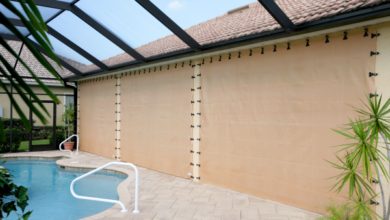
Understanding Home Emergency Cover: What You Need to Know
Your home is more than just a place to live; it’s a sanctuary where you and your loved ones feel safe and secure. However, no matter how well you maintain your home, emergencies can and do happen. From burst pipes and electrical failures to boiler breakdowns and pest infestations, these unforeseen events can be not only inconvenient but also expensive to resolve. This is where home emergency cover comes into play, offering a safety net for homeowners and renters alike. In this comprehensive guide, we will delve into what home emergency cover is, how it works, and why it’s essential for maintaining the comfort and security of your home.
Table of Contents
Understanding Home Emergency Cover
What is Home Emergency Cover?
Home emergency cover is an insurance policy or service that provides immediate assistance and financial support when unexpected home-related emergencies occur. These emergencies typically include issues like boiler breakdown cover, heating failures, plumbing problems, electrical faults, roof damage, pest infestations, and security breaches. The primary purpose of home emergency cover is to ensure that you can quickly and efficiently address these emergencies without the stress of finding and coordinating a tradesperson or worrying about the associated costs.
How Does Home Emergency Cover Work?
Home emergency cover works by providing you with access to a 24/7 helpline that you can call when you experience a covered emergency. When you contact the provider, they will assess the situation and arrange for a qualified tradesperson or service provider to come to your home and make the necessary repairs. In many cases, the cover includes the cost of the callout, labor, and parts, so you don’t have to worry about any upfront expenses.
The specific coverage and terms can vary from one provider to another, so it’s crucial to read the policy documents carefully to understand what is and isn’t covered. Typically, the policy will have a limit on the total amount you can claim within a year and a maximum claim amount for each emergency incident.
Key Benefits of Home Emergency Cover
- Peace of Mind: Home emergency cover offers peace of mind, knowing that you have a reliable and rapid response when something goes wrong in your home. This can be especially reassuring if you have a family or dependents relying on the home’s functionality.
- Cost Savings: Home repairs, especially during an emergency, can be expensive. With home emergency cover, you won’t have to worry about the financial burden of unexpected repairs, as most policies cover the costs of labor, parts, and callouts.
- Convenience: Coordinating and finding a qualified tradesperson during an emergency can be challenging and time-consuming. Home emergency cover simplifies the process by providing a ready-made network of professionals to assist you.
- Quick Response: Emergencies can happen at any time, day or night. With 24/7 helplines and rapid response times, home emergency cover ensures that help is just a phone call away, no matter when the problem occurs.
- Protection for Renters: While homeowners can choose to have home emergency cover, renters can also benefit from it. Since renters don’t own the property, they may not be responsible for regular maintenance, making this type of coverage even more valuable in emergencies.
Common Covered Emergencies
Home emergency cover typically includes a range of common emergencies that can occur in a household. Here are some examples of emergencies often covered by these policies:
- Boiler Breakdown: A malfunctioning or non-operational boiler can leave you without hot water and heating, especially during cold winter months. Home emergency cover can ensure that a qualified engineer addresses this issue promptly.
- Plumbing Problems: From burst pipes to blocked drains and leaking taps, plumbing emergencies can cause significant damage if not addressed quickly. Home emergency cover can send a plumber to fix the issue and prevent further damage.
- Electrical Failures: Electrical problems, such as power outages or faulty wiring, can be hazardous and inconvenient. Home emergency cover can dispatch an electrician to resolve these issues promptly.
- Roof Damage: Storms and severe weather can damage your roof, leading to leaks and potential structural problems. Home emergency cover can provide roof repairs to prevent further damage and maintain your home’s integrity.
- Pest Infestations: Unwanted pests like rodents or insects can invade your home, posing health risks and causing damage. Some policies offer pest control services to address these infestations.
- Security Breaches: Break-ins or damage to locks and doors can compromise your home’s security. Home emergency cover may include services to secure your property and make it safe again.
- Broken Windows: Whether due to vandalism, accidents, or extreme weather, broken windows can be a security and safety concern. Home emergency cover can arrange for window repairs or replacements.
- Lost Keys: If you find yourself locked out of your home or unable to secure it due to lost or stolen keys, some policies offer assistance with locksmith services.
Choosing the Right Home Emergency Cover
When considering home emergency cover, it’s essential to choose the right policy that suits your needs. Here are some factors to consider when selecting a policy:
Coverage Limits: Check the coverage limits and the maximum claim amounts for each emergency. Ensure that they align with the potential costs of repairs for your home.
Exclusions: Understand the exclusions of the policy, as not all emergencies may be covered. Some policies exclude pre-existing issues or problems caused by negligence.
Response Time: Look for policies with quick response times, especially if you live in an area with extreme weather conditions where emergencies can escalate rapidly.
24/7 Helpline: Ensure that the provider offers a 24/7 helpline, as emergencies can occur at any time.
Service Network: Check if the policy has a network of qualified tradespeople or service providers in your area. A wide network ensures that you can quickly access help when needed.
Reviews and Reputation: Research the provider’s reputation and read reviews from other policyholders to gauge their customer service and claim satisfaction.
Cost: Compare the cost of the policy against the coverage it provides. Make sure it fits within your budget.
Add-Ons: Some policies offer additional coverage options, such as home appliance cover or home security upgrades. Consider whether these add-ons would be beneficial for your situation.
Policy Duration: Determine whether you want a one-time policy or ongoing coverage. Some policies are offered on an annual basis, while others are available for a one-off fee per callout.
How to Make a Claim
When you experience a covered emergency in your home, follow these steps to make a claim under your home emergency cover policy:
Contact the Helpline: Call the 24/7 helpline provided by your insurance company or service provider as soon as you become aware of the emergency. Describe the situation and provide any necessary details.
Assessment: The provider will assess the emergency over the phone to determine if it qualifies for coverage under your policy.
Dispatch of Services: If the emergency is covered, the provider will dispatch a qualified tradesperson or service provider to your home. They will make the necessary repairs or take appropriate actions to address the emergency.
Payment: In most cases, the policy covers the costs associated with the callout, labor, and parts. However, it’s essential to check your policy to understand the extent of coverage and any excess fees you may be responsible for.
Follow-Up: After the emergency has been resolved, follow up with your provider to ensure that all necessary repairs have been completed to your satisfaction.
Is Home Emergency Cover Worth the Investment?
The value of home emergency cover depends on various factors, including your individual circumstances and the condition of your home. Here are some considerations to help you determine if it’s worth the investment:
Age and Condition of Your Home: Older homes and properties in need of repairs may benefit more from home emergency cover, as they are more susceptible to breakdowns and emergencies.
Climate and Weather: If you live in an area with extreme weather conditions, such as heavy snowfall, hurricanes, or frequent storms, the risk of home-related emergencies may be higher, making the cover more valuable.
Financial Situation: Consider whether you have the financial resources to cover unexpected home repairs without insurance. Home emergency cover can provide a safety net for those who want to avoid large, unexpected expenses.
Peace of Mind: For some homeowners, the peace of mind that comes with knowing they have immediate assistance in emergencies is reason enough to invest in home emergency cover.
Rental Properties: If you are a landlord, offering home emergency cover as part of your rental property can be attractive to tenants and help you maintain the property’s value.
Availability of Trusted Tradespeople: If you struggle to find reliable tradespeople in your area, home emergency cover can be a convenient solution.
In the end, whether home emergency cover is worth the investment is a personal decision that should take into account your specific circumstances and priorities.
Common Myths and Misconceptions
Before deciding on home emergency cover, it’s essential to dispel some common myths and misconceptions surrounding this type of insurance:
“I Don’t Need It; My Home Is New”: While newer homes may have fewer maintenance issues, emergencies can still occur. Newer properties may benefit from the peace of mind and convenience that home emergency cover provides.
“My Home Insurance Already Covers It”: Home insurance typically covers structural damage and theft, but it may not include coverage for common household emergencies like boiler breakdowns or plumbing issues. Home emergency cover is designed to address these specific types of emergencies.
“I Can Handle Emergencies Myself”: While you may be capable of handling some emergencies, others may require specialized skills and tools. Home emergency cover ensures that qualified professionals are on hand to address these situations.
“It’s Too Expensive”: Home emergency cover comes at various price points, and you can choose a policy that fits your budget. Consider the potential cost of emergency repairs without insurance when evaluating its affordability.
“I’ll Just Use My Savings”: While using savings to cover emergency repairs is an option, it can deplete your savings and leave you financially vulnerable. Home emergency cover provides a more predictable and manageable way to handle these expenses.
Conclusion
Home emergency cover is a valuable safeguard that provides homeowners and renters with peace of mind, convenience, and financial protection in the event of unexpected home-related emergencies. By understanding what home emergency cover is, how it works, and the benefits it offers, you can make an informed decision about whether it’s the right choice for you and your home.
Remember that the specific terms and coverage limits can vary from one provider to another, so it’s essential to carefully review policy documents, compare options, and choose a plan that aligns with your needs and budget. Ultimately, having home emergency cover in place can help you maintain the comfort, security, and integrity of your home, ensuring that it remains a haven for you and your loved ones.








